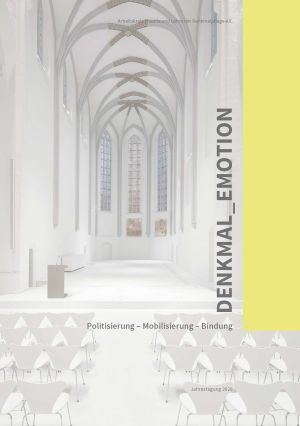Zitationsvorschlag
Veröffentlicht
Wahn, Zwang, Labilität
Beobachtungen zur Psychopathologie der Denkmalpflege
The inspiration for this essay can be traced back to a chance encounter with a piece of popular media culture: the film Misery (Rob Reiner, 1990), based on the 1987 novel She by American author Stephen King. At the heart of the plot is a fraught, white-knuckle battle between two combatants. The writer Paul Sheldon, badly injured in a car accident on a highway far from civilization, at first seems fortunate to be rescued from by one of his greatest admirers, Annie Wilkes, who takes him in and tends to his wounds. Paul slowly begins to realize, however, that he is in fact her prisoner and that Annie is a violent fanatic who is not prepared to accept his decision to kill off one of his literary figures, the heroine Misery. The film presents the radical shifts in emotions and the escalation into brutal violence that will leave only one of the two combatants alive. Is it possible to recognize parallels here – albeit in grossly exaggerated and fictionalized form – to a situation familiar from heritage conservation practice? The basis for comparison can be found in the functional constellation at work: Person 1 is the author of a work and is responsible for it (at least initially), while Person 2 is the recipient and feels responsible by virtue of his or her identification with it. Both have claim to a kind of sovereignty over the work, and their claims stand in conflict with each other. In the practice of heritage conservation by appointed authorities and volunteers, too, collisions of interests are a daily occurrence. A further point of comparison is offered by emotions: they are inherent to people as agents both individually and in sets, and can find reflection in passionate and embittered controversies. Independent of the ways in which their roles are viewed, and regardless of who assumes the role of Paul or Annie in a given situation: a high degree of self-consciousness as well as professional emotional guidance would seem to be called for.








